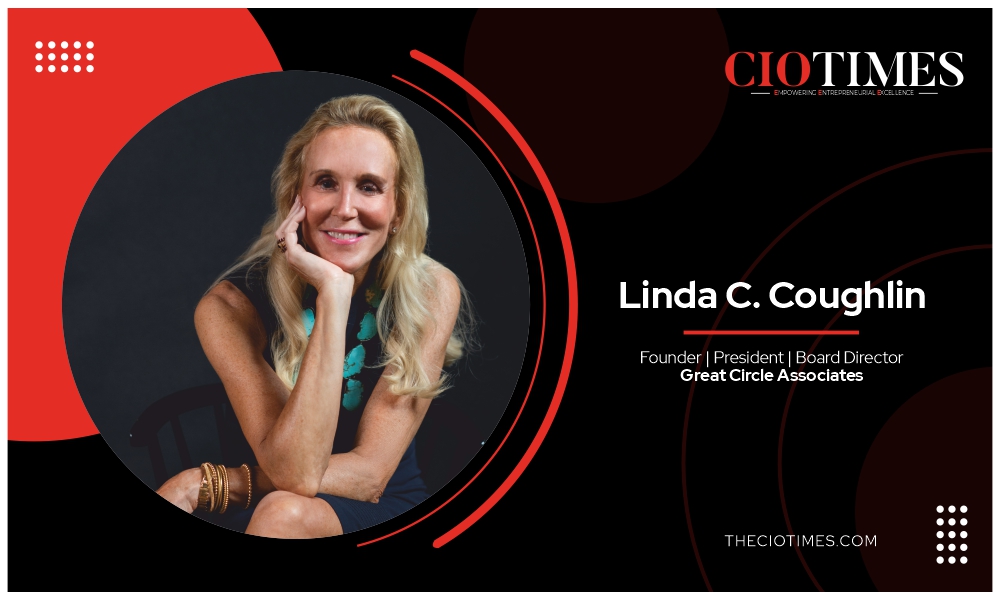Saving lives and enhancing healthcare delivery is crucial, as we are all potential patients and customers of the healthcare system. This passion, along with personal experiences with his family and loved ones, led Jens Dommel to work in the healthcare space.
A Journey Crafted by Passion
Jens Dommel is the Head of Healthcare for Europe, Middle East, and Africa (EMEA) at Amazon Web Services (AWS). With a strong background as an entrepreneur, sales expert, and marketing strategist, Jens has held diverse management positions in IT enterprises, specializing in the healthcare industry.
Jens studied at TU Berlin, where he graduated as an engineer in information technology and mechanical engineering. This interdisciplinary study provided him with a broad skill set. During his studies, he sought practical experience and worked with the Fraunhofer Institute, engaging in projects related to standardization, research, and business process optimization.
Working in a few startups, he implemented software for major companies, developed skills in customer engagement and change management, and eventually advanced to sales manager and management team member, taking on diverse roles and responsibilities. Eventually, Jens was offered to join Microsoft, marking his first foray into the public sector as a vertical partner manager.
At Microsoft, Jens helped transition the company to an industry-centric model. During this time, he recognized the critical importance of healthcare, influenced by personal experiences. Noticing the lack of focus on healthcare within the organization, he proposed and successfully established a healthcare vertical in Germany. This initiative led to his role as a business development manager for Western Europe, where he scaled this model to other countries.
Jens’ focus on healthcare deepened as he joined Microsoft’s Health Solutions Group, driving the go-to-market strategy for clinical and consumer health products in Europe. This role taught him about clinical demands, consumer needs, and partner engagement., established a healthcare vertical in Germany, and scaled it across Western Europe. He then joined Compromatical, where he led cloud-based healthcare projects and managed a large team. After six and a half years, he joined AWS to build their healthcare vertical in EMEA, leveraging cloud technology and AI to improve healthcare.
“For the past five years, I’ve been building a subject matter expert team at AWS, focusing on genomics, medical imaging, medical records, and AI/ML. We’ve developed a robust ecosystem of partners and supported our customers in their digital transformation and cloud adoption. Our goal is to help customers succeed, save costs, and bring speed and agility to healthcare, ultimately benefiting doctors, nurses, and patients,” shares Jens.
The Leader’s Approach
Reflecting on his journey, Jens shares that AWS’s mission to improve and save lives aligns perfectly with his passion for enhancing the healthcare system. This customer-centric approach is central to his leadership philosophy. Understanding the root causes of challenges and focusing on customer needs is crucial, especially in the complex healthcare sector.
He believes in challenging existing barriers and thinking outside the box to find the best solutions. This principle of innovation and not limiting oneself has shaped his approach to leadership and teamwork.
Another key aspect of his leadership philosophy is the importance of diverse teams. Innovation thrives in an environment of psychological safety, where team members feel empowered to test ideas, even if it means occasional failure. A clear vision and confidence in the team’s ability to deliver results are essential.
“My leadership principles align seamlessly with Amazon’s, particularly the “Day One” culture, which emphasizes relentless customer focus, rapid innovation, and a willingness to experiment and embrace change. This alignment between my personal philosophy and the company’s values creates a strong fit and drives continuous improvement to stay ahead of customer needs,” explains Jens.
Driving Digital Transformation in Healthcare
AWS Health Services is transforming how healthcare and life sciences organizations collaborate to make data-driven clinical and operational decisions. This enables precision medicine, reduces the cost of care, and achieves better outcomes. AWS offers over 240 cloud services and partner solutions, used by thousands of customers globally. With a secure and reliable infrastructure spanning more than 33 regions, AWS democratizes technology, making it accessible to organizations of all sizes. This democratization drives customer success and system improvements.
AWS is democratizing access to technology for organizations of all sizes, from nationally known hospitals to smaller regional health systems, nonprofits, and academic medical centers. With the cloud’s pay-as-you-go model, customers no longer need significant upfront investments in infrastructure. They can quickly set up and test new innovations, fostering a culture of rapid experimentation and improvement.
AWS partners with key legacy providers, such as medical record and imaging systems, to transform their offerings into managed services. This allows customers to focus on usage and configuration while AWS ensures reliability and security. By leveraging AI and other advanced technologies, AWS helps customers innovate faster, optimize processes, and enhance security.
Healthcare organizations are frequent targets of cyberattacks, with a 60% increase in the last 12 months. AWS provides robust security services, including AWS Shield, to protect against these threats. Disaster recovery is also a critical demand, and AWS helps customers quickly restore services in case of disruptions.
Unlocking the potential of data through AI is another significant focus for Jens and his team. AWS enables clinicians and researchers to create secure environments, unify data, and build AI models. With pre-trained foundation models, customers can customize applications to meet their specific needs, driving further innovation in healthcare.
Jens shares that fine-tuning existing pre-trained models is significantly faster and requires less computational time and data compared to creating task-specific ML models from scratch. AWS offers multiple services to facilitate this, such as Bedrock, SageMaker, and the new Amazon Q. Amazon Q can be tailored to an organization by connecting it to company data and systems, streamlining tasks like summarizing documents, generating drafts, conducting research, and filling tickets. Importantly, Amazon Q respects existing identity rules, ensuring secure and appropriate access to data, especially when dealing with patient information.
“AWS is committed to responsible AI, focusing on rules, permissions, and personalized interactions to meet responsible AI criteria. This commitment ensures that our technology not only drives innovation but also maintains the highest standards of security and ethical use,” asserts Jens.
Addressing Health Disparities and Promoting Health Equity
Today, approximately half the world’s population lacks access to basic healthcare. Since launching the AWS Health Equity Initiative in 2021, AWS has supported various projects, including maternal health, mental health, homelessness, and transportation.
For example, they partnered with Righty Pharmacy to revolutionize medication distribution in rural areas, especially in Africa. Patients receive an SMS with a QR code to pick up medication from lockers, improving access for over one million unique patients and delivering 10 million prescriptions in four sub-Saharan countries.
Another example is Huron AI, which democratizes access to high-quality cancer care through its app, Gukiza, running on AWS. This app enables remote patient monitoring and tele-oncology, which is crucial in Africa, where oncologists are scarce.
“Ensuring healthcare access is a global issue, and we are excited to participate in the World Health Summit as a strategic partner. This cooperation between the public and private sectors is essential for addressing the world’s most pressing health challenges,” emphasizes Jens.
Sustainability in its Healthcare Solutions
“If the healthcare sector were a country—it would be the fifth largest emitter of carbon dioxide equivalent on the planet,” states Jens. Addressing this, studies show that cloud technology is a key enabler of sustainable healthcare systems. A 2022 World Economic Forum report recommends shifting to the cloud to save on materials needed for on-site hardware and reduce CO2 emissions. Research by 451 found that AWS can lower customers’ IT workload carbon footprint by nearly 80%, rising to 96% as AWS aims to be powered by 100% renewable energy by 2025.
AWS is also committed to becoming water-positive by 2030, with significant improvements in water use efficiency. Transforming care delivery to support sustainability involves shifting from resource-intensive clinical facilities to networked, lower-cost settings and at-home care. Technologies like telehealth, AI-driven clinical decision support, and e-prescriptions optimize efficiency and reduce resource use.
“These efforts not only enhance sustainability but also improve healthcare delivery, making it faster and more efficient,” asserts Jens.
A Rapidly Evolving Sector
The healthcare sector is rapidly evolving, driven by innovation. For example, shares Jens, that generative biology is creating breakthrough medicines, such as Chroma’s model, which has developed proteins with programmable properties not found in nature. Similarly, Atera Therapeutics is using regenerative AI to discover new small molecule therapeutics for diseases of aging, including cancer.
October is Breast Cancer Awareness Month, highlighting how AWS customers are transforming the patient journey for cancer patients. AWS, in collaboration with Vidyo and MONAI, provides the largest metastatic cancer dataset for researchers worldwide. AI-powered diagnostics, like those from Munich Leukemia Lab and partnerships with Rush and Ibex, ensure accurate, timely, and personalized cancer diagnoses.
The accessibility of data is increasing, leading to new insights and outcomes. For instance, an AI project with the Ministry of Health in Bavaria identified gender-specific biomarkers for heart attacks, showcasing AI’s potential to improve diagnosis and treatment standards.
“In the past, research methodologies have been more male-centered than female-centered, which is just one example of existing ethical gaps. Addressing these gaps is crucial for driving the next wave of innovation in healthcare. By using data effectively and unlocking its potential, we can turn it into valuable insights. These innovations help doctors and nurses make more precise decisions by leveraging vast amounts of data and AI, ultimately improving patient care and outcomes,” explains Jens.
Vision for the Future
As mentioned above, the pace of change is rapid and it’s challenging to predict the future. However, Jens and his team’s commitment to AWS customers and supporting its partners on their digital journey remains a core part of their vision and strategy.
Their top priority is to make health systems more secure, with security being their foundational job zero. These build trust in the cloud and in them as a partner. For instance, AWS has announced a sovereign pledge and is enhancing its European sovereign cloud, set to launch next year.
They are listening to customer demands and supporting them by prioritizing speed, agility, and cost reduction over the next five years. They see their partners shifting from traditional software implementation to managed service offerings, which will scale and bring more agility.
AWS discussed the potential of data to drive personalized and precision medicine. Its model, “better data, better insight, better outcomes,” aims to unlock potential and make AI accessible to everyone, including health professionals. This involves optimizing administrative processes and supporting diagnosis.
Their focus extends beyond professionals to consumers and patients, empowering them with tools and connecting them with doctors and hospitals as needed. This trend will grow over the next five years, supported by multi-modal data lakes and research platforms.
The cost reduction in genome sequencing is making genomic data more integral to clinical research and decision support. Jens sees the use of AI progressing in existing environments and health-specific models like those for medical imaging and protein analysis. Additionally, large language models will become more prevalent, especially in local languages, aiding doctors and accelerating development.
“While it’s difficult to predict the next five years, we are focused on leveraging technology to improve health systems, listening to feedback, and driving innovation. At the end and this is also the foundation we are doing it because of improving health care and at the end to save lives and this is what drives us and AWS and health care as well as me and my personal passion,” concludes Jens.
The following sections need to be designed in the PDF at appropriate design locations:
On Dealing with Personal and Professional Challenges:
On a personal note, when my son was born two months prematurely, I realized how crucial it is to have an environment supported by expertise, especially in such a challenging situation. As a parent, you feel a bit lost and really need help. Now, he’s 19, and alongside my daughter, whom I love dearly, he has shown me the incredible impact healthcare can have. This was a significant moment for me, highlighting the importance of quality healthcare.
Conversely, the death of my father was a stark reminder of the system’s shortcomings. With better support, diagnosis, and doctors, he might still be alive today. This personal experience fueled my passion and commitment to improving healthcare.
Additionally, my professional experiences, such as working with a great team to overcome significant challenges, have reinforced my belief in the importance of trust, capability, and building the right teams. Leadership principles like thinking big and believing in our ability to execute are fundamental to my approach. These experiences have shaped my career and drive my dedication to making a positive impact in healthcare.
Message for Aspiring Leaders in Healthcare
We challenged the most successful cloud projects to identify their success criteria. The first outcome is to have a vision and set big, challenging goals. My advice is to start small, learn, and be patient.
When setting up a strategy, it’s crucial for leaders to be involved. Pursue long-term goals with flexibility in short-term implementation. Managers should use dashboards and reports to track progress, focusing on impact rather than just outcomes. Outcomes are tangible and measurable, but impact refers to deeper, more meaningful changes.
In cloud technology, it’s important to understand that it’s not just about IT outsourcing. Cloud enables cultural change and innovation. Leaders should leverage cloud and AI to manage health data and drive innovation. This understanding allows teams to experiment and innovate quickly without significant upfront investment.
Train your workforce not only in technical skills but also in embracing the cultural shift that cloud technology brings. This will help them utilize the infrastructure effectively and foster an innovation culture.
A Quote to Live By:
Well, there are a couple of quotes I really like. One of my favorites is, “Don’t let success go to your head and failure to your heart.” It’s about humility. When you achieve success, it’s important to stay humble and grounded. Don’t let it inflate your ego or make you lose sight of what’s important. Keep listening and learning.
On the flip side, when you face setbacks or failures, don’t let them crush your spirit. Don’t be overly hard on yourself or let disappointment consume you. Failures are part of the learning experience; they drive innovation, and growth, and build resilience. It’s also about fostering a leadership culture that views failure positively.
I think this quote frames it very well. It’s one of my absolute favorite quotes, and I use it in my daily life.
Quote: “Our vision is to make AI so easy that every institution is able to become an AI organization or AI company that you need to simplify things and the ability to easily privately and securely customize a pre-trained model is a real game changer.”
Explore the Digital Magazine Here




